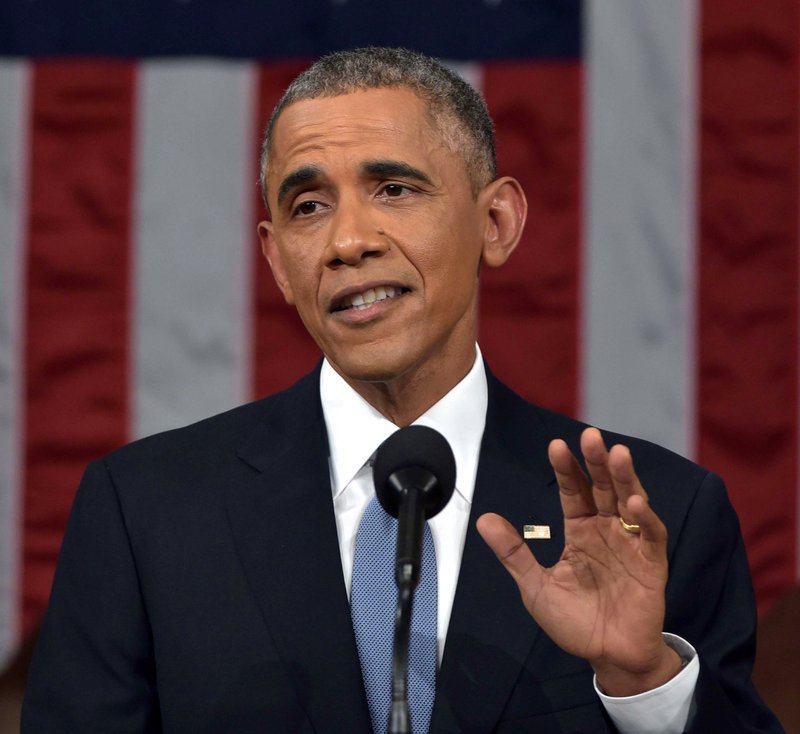WASHINGTON -- The White House is dropping a proposal to scale back the tax benefits of college savings plans after a backlash from Republicans and Democrats, officials said Tuesday.
President Barack Obama last week announced the proposal to tax the earnings on college savings accounts, known as 529s. It was part of Obama's broader plan to consolidate and simplify an array of tax breaks for college students.
Resistance from Congress was swift. Republicans publicly criticized the 529 proposal, and aides said House Democratic leader Nancy Pelosi pushed senior administration officials to drop it from the president's budget as she flew with the president aboard Air Force One from India to Saudi Arabia. That budget is due out Monday.
Other Democrats also privately weighed in against the plan, including Rep. Chris Van Hollen of Maryland, the top Democrat on the House Budget Committee, and Sen. Charles Schumer, D-N.Y., officials said.
One White House official said Tuesday that the proposal had become a distraction.
"We proposed it because we thought it was a sensible approach, part of consolidating six programs to two and expanding and better targeting education tax relief for the middle class," the official said. "Given it has become such a distraction, we're not going to ask Congress to pass the 529 provision so that they can instead focus on delivering a larger package of education tax relief that has bipartisan support."
The officials spoke on condition of anonymity because they were not authorized to be quoted by name.
Obama's plan would have reduced the tax benefits of future contributions to the popular 529 college savings plans. Current accounts would have been grandfathered, so existing funds could still grow and be withdrawn tax-free.
Contributions to college savings plans are not tax-deductible at the federal level. But once the money is invested, it can grow and eventually be withdrawn with no tax on the earnings, as long as the money is spent on tuition, fees, books and supplies needed to attend a postsecondary school.
The savings plans, which are sponsored by states, also can be used to prepay college tuition.
The administration said all the additional revenue from taxes on 529 earnings would have been used to help expand and make permanent a $2,500 tax credit that families can use for education expenses. That tax credit, which is aimed at more middle-class families, is scheduled to expire at the end of 2017.
About 12 million families take advantage of college savings plans. About half were held by families making more than $150,000, according to a 2012 report by the Government Accountability Office. About 30 percent of the plans were held by families who make less than $100,000, the report said.
The White House said Obama's proposal to scale back the tax benefits for 529s was a small part of his overall plan to cut taxes for the middle class and to make college more affordable. Obama also is proposing a $60 billion plan to make the first two years of community or technical college free.
Obama and administration officials had argued that the 529 tax benefit had helped richer Americans more than the middle class.
"The current 529 is very tilted towards the upper end," Jason Furman, chairman of Obama's Council of Economic Advisers, said last week. "And a variety of research has shown it's ineffective in serving its goals of getting people to go to college who wouldn't otherwise have gone."
But some lawmakers immediately challenged that assessment.
"This tax would have hurt middle-class families already struggling to get ahead," said House Speaker John Boehner, R-Ohio.
Earlier Tuesday he called on Obama to abandon the proposal, saying that "529 plans help middle-class families save for college, but now the president wants to tax those plans."
Some Democrats agreed.
"The President's plan has the puzzle pieces necessary to bring the middle class back, but this particular piece didn't fit," Schumer said in a statement.
Furman said last week that the proposal to end the 529 tax credit would have raised about $1 billion over a decade, compared with about $50 billion the administration was planning to spend to expand the other tax breaks for education.
Many of the burdens from the overall tax plan the White House announced this month would fall on the wealthy.
While 529 plans don't have income restrictions, the new proposed tax credits wouldn't be available to households with incomes exceeding $180,000.
Obama also proposed raising the top capital-gains rate to 28 percent from 23.8 percent, taxing appreciated assets at death and imposing a fee on large financial institutions. Those proposals would raise $320 billion over a decade.
But a few of the other provisions would have hit a broader section of the population. In addition to the 529 idea, the administration also proposed eliminating flexible spending accounts that let parents set aside tax-free money for child care and eliminating the student loan interest deduction for new borrowers.
White House officials said Tuesday that Obama's proposed increase in the capital-gains tax rate and change to the taxation of inherited wealth would be more than enough money to fund the larger package of education tax relief, which has bipartisan support.
Information for this article was contributed by Stephen Ohlemacher of The Associated Press; by Richard Rubin, Mike Dorning and David Weigel of Bloomberg News; and by Jonathan Weisman of The New York Times.
A Section on 01/28/2015
